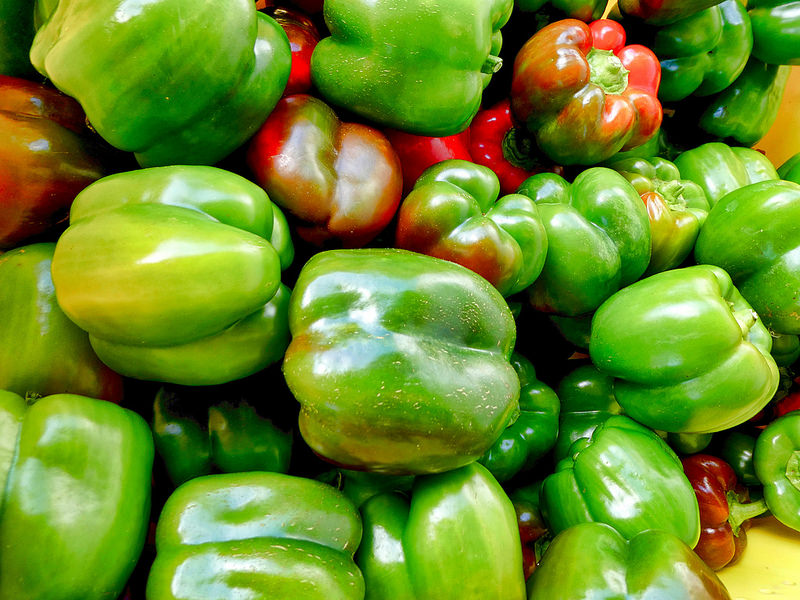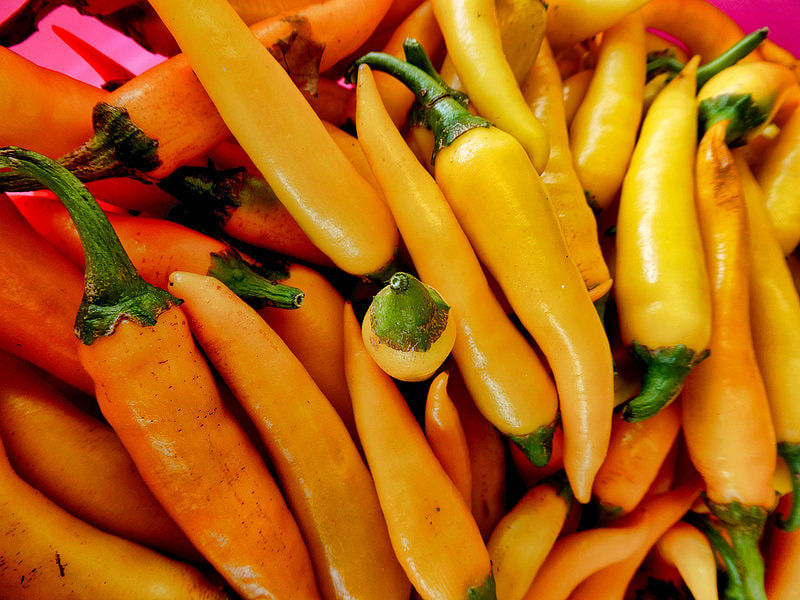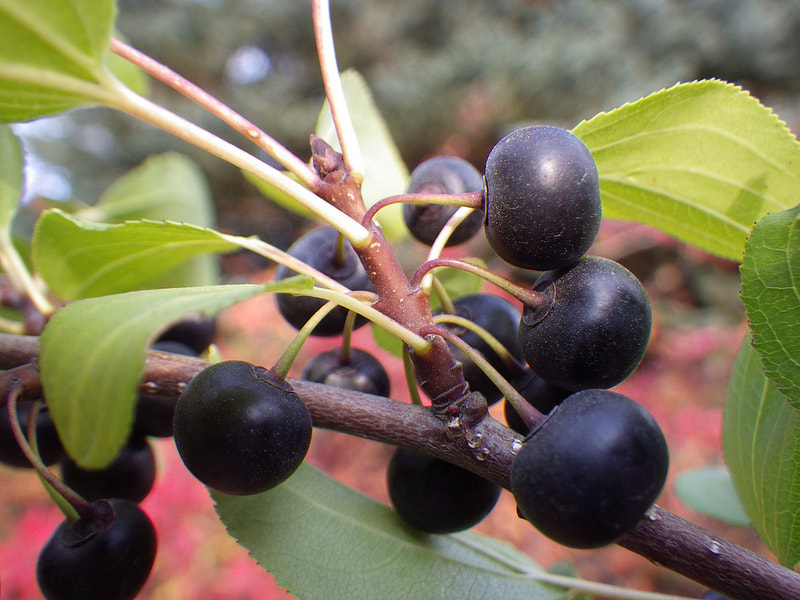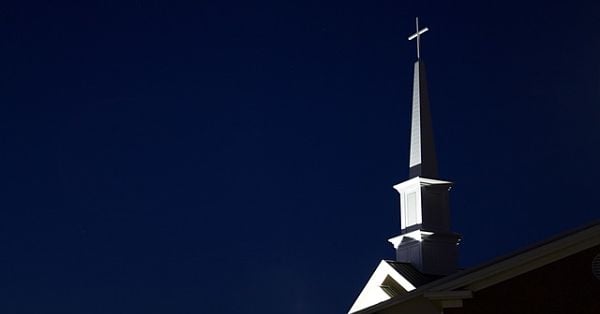From a process perspective...
If I use the process perspective of ecotheology to think expansively of the universe as the "language of all being" than essentially this language can be broadly defined as "spiritual" thus creating a personal or inclusive experience to all living or non-living things participating within its complex. The experience is the same whether for atheists, theists, agnostics, animals, trees, rocks, or atoms. It is simply its language of being which provides to it existence, substance, provision, relationship, event, context and a host of other interwoven ingredients making for the language of life we call the cosmos. For the Christian, it is simply the language of God which He endowed His creation with - essential Himself, or His divine Being - and with all that this can mean as we as humans continue to try to grasp and explain His inhabiting grace and spirituality.
It seems then this experience was the divine spiritual essence with which the founding fathers of ecology tapped into, became caught up in its web, and sought to share with their fellow communities of beings. John Muir, Aldo Leopold, and Henry David Thoreau each separately reveled in their preliminary revelations of "nature's spirituality" attempting to describe to the twentieth century's industrial revolution the substantively transformative affects these insights could have on developing eco-civilizations. Simply, they began to envision early eco-communities in spiritual harmony with very nature itself (and for the theist expansively, with the very fellowship of God Himself). Hence, regardless of religious affection, these founding fathers each had a love and care for nature we might describe as "spiritual."
It is thus within this broader, inclusive ontological language of "spirituality" we might ascribe to the cosmos life experiences beyond the assumed spiritual convocations of the church, temple or religious settings. That all things inhabit a kind of spirituality from the Divine which, having created the cosmos, might bring it to bear to fruition unto all things so that it shouldn't be surprising to find a kind of spirituality residing within mere secular structures, pagan occasions, or very nature itself. Fundamentally, the very nature of the universe is in itself essentially-and-always "spiritual."
This is what underlies process thought - with its adjoining branch of process theology - each deigning to consider the entanglement of the universe with itself from its rudimentary forms of relational space-time elements to its relational real-time actualities spawning what can be described in Whiteheadian terms as infinitely acceding "concresencing events" holding each relational moment eternally open-ended with possibility, novelty, and opportunity spawning an ever-evolving, ever-expanding, creational communion between God, the cosmos, and man. As an aside, *concresence is the coalescence, or growing together, of parts originally separated by an event. In the Christian sense, this event may be broadly described as "sin" entering creation to separate it from itself. But because of the divine inhabiting creation's essence, the spirituality of the cosmos moves forward coalescing, or growing together, towards a kind of wholeness in process with its very nature. Thus process thought and process theology together seek to capture this cosmic spiritual essence by bringing it forward into humanity's thoughts, structures, beliefs, and activities.
Lastly, when we delimit this ontological symmetry-and-balance of evolving spiritual process with our own unspiritualized lives we then create endless ripples of possibilities of life-devolving forms rather than life-evolving forms. We miss the spiritual for the mere natural without fully realizing how we tread through the spiritualized entanglement of cosmic relational processes in time and space clod-footed and dim of thought. Like too many things broken by sin we miss the spiritual for the secular and seek the present for the eternal. And yet, despite our ponderous influences and devastating affects within this life the very nature of the cosmos stands against us like mere sand castles to the ocean's tides. We live in an ocean of grace and substance, goodness and creative happening. We need to listen to the spiritual overtones God and His cosmos are constructing everywhere about and within to find, in our own lives, the symmetry and balance of spirituality that might inter-play a chord or two across the broad symphony of God's creational bounty we cannot hear unless we learn to stop, listen, and hum a few bars.
R.E. Slater
February 18, 2018
re-edited February 19, 2018
* * * * * * * * * * * * * * *



Ecotheology and Ecological Civilizations
An Overview of Ideas and Practices
Ecotheology is an outlook on life that sees something sacred
in people, animals, and the earth and in human efforts to
help build Ecological Civilizations, with no one left behind.
It is available to people with many different religious affiliations,
and also to people without any religious affiliation. It can include,
but does not require, belief in God. What is sacred is life itself.
An Ecological Civilization is a society in which people live with respect
and care for the community of life, with special care for the vulnerable.
They know that they are small but included in a larger web of life that includes
hills and rivers, trees and stars, and that this web is their extended family.
For them the universe is a communion of subjects and not just a collection of objects.
This means that there is something like aliveness -- or subjectivity -- everywhere.
The fundamental units of Ecological Civilizations are local communities,
in rural and urban settings, that are creative, compassionate, participatory.
Egalitarian, culturally diverse, multi-religious, humane in their treatment of animals,
ecologically wise, playful, imaginative, and spiritually satisfying.
*Below we at Open Horizons offer some general comment on ecotheology, and some short video examples of local action aimed at helping build Ecological Civilizations. We hope this page will be useful to all who are interested in helping build a greener, kinder, and more joyful world.
see also:



A Mentor: Jane Goodall and the Ecotheological Spirit
Ecotheology: General Observations
Ecotheology. Ecotheology does not belong to a single culture or religion. It is a social and spiritual movement emerging in the 20th and 21st centuries among people of many different cultures, and from many walks of life, all over the world. They share the idea that the well-being of life on earth, not ever increasing economic growth, is the best ideal for societies to follow; and that we humans become whole, not when we amass large amounts of material goods, but when when live kindly with one another, gently with animals, and lightly on the earth. Along with Gandhi, they believe that there is enough on earth to satisfy everyone's need, but not everyone's greed.
Some Mentors for Ecotheology: Lao Tzu, Black Elk, Gandhi, Tagore, Rachel Carson, Howard Thurman, John Muir, Thomas Berry, Jane Goodall, Rachel Carson, and Pope Francis.
Examples of Ecotheology. Pope Francis' Laudato Si. The building of a community garden. Earth jazz. Victor Wooten's organization of a Center for Music and Nature outside Nashville, Tennessee. Jane Goodall's video above.
A sample of Ecotheological Ideas. The environment is not an issue among issues but rather a context for all issues, because it is the web of life on earth. The universe is a communion of subjects, not a collection of objects; there is no 'dead' matter. God is not a tyrant in the sky but rather the deep Listening in whom the universe lives and moves and has its being. Our calling in life is not to ask how much we can get from life but rather what does the world need from us. It is to help build eco-communities.
Eco-communities. Neighborhoods, villages, towns, cities, states, and nations that are creative, compassionate, participatory, diverse, ecologically wise, and spiritually satisfying, with no one left behind. They can also be called just and sustainable communities.
The theological side of Ecotheology. Ecotheologians emphasize that there are three dimensions of a well-lived life: spirituality, understanding, and action. The theological side of ecotheology is its spirituality. It may or may not involve belief in God, understood as a personal presence active in the world or a deep listener affected by all that happens. It always involves respect and care for the community of life. a sense of being small but included in a larger whole, delight in multiplicity, and gratitude for beauty.
So non-theists can be Ecotheologians? Yes. The heart of Ecotheology is respect and care for the community of life. Belief in God is a viable way of embodying this respect but not the only way, but it is not necessary. People can appreciate the sacredness of felt connections with other people, animals, and the Earth without believing in God. Thy believe in the horizontal sacred.
What about people who believe in God? Can they be ecotheologians? Yes, of course. There are many ways of understanding God. Many ecotheologians (process theologians, for example) understand God panentheistically, which means everything-in-God. The general idea is that God the universe is inside God, not unlike the way in which clouds are in the sky or a womb is in an embryo, but that God is also more than everything added together, continuously influential in the world as a non-coercive lure toward wisdom, compassion, and creativity in human life, a lure to live with satisfaction in other animals, and a lure toward novelty in the cosmos as a whole.
Can people who are "spiritual but not religious" be ecotheologians? Yes. Many ecotheologians are not affiliated with the world religions and identify themselves as naturalists. But many ecotheologians are religiously affiliated, too; and the world's religions offer many resources for a healthy ecotheology. If you are curious about how the world's religions can help people live lightly on the earth and gently with one another, see the Yale Forum on Religion and Ecology.
What about science? Many ecotheologians are also scientists, and almost all ecotheologians (scientists or otherwise) are grateful for, and indebted to, modern science. Some version of evolutionary thinking is presumed not questioned. Pope Francis and Jane Goodall are good examples. Ecotheologians oppose making a god of science (scientism) but not science itself.
Integral Ecology. Pope Francis' name for a state of affairs in which care for people, care for animals, and care for the earth is integrated. Integral ecology is a good name for what eco-communities embody and aspire to embody.
Eco-Justice. The human side of integral ecology. A state of affairs in which human beings freely participate in the decisions that affect their lives; with ample opportunities for life, liberty, education, health care, and happiness. They are free from fear and free to enjoy rich relations with other people and the more-than-human world.
Two Sides: The Political and the Personal. One of the aims of the ecotheologian is to empower people to build eco-communities. This is the political side of Ecotheology. Another is to provide them with opportunities for personal fulfillment and satisfaction. This is the personal side of Ecotheology. Often these two -- the political and personal -- go hand in hand. Both are important.
Language of Ecotheology. Ecotheology can speak through words, images, movements, and sounds. All can function as lures for feeling and understanding. Landscapes and soundscapes can also function as lures for feeling. Lures for feeling can be humanly made or they can be made by the more than human world: geological activity, for example. There is no need to impute conscious intention to the creation of the lures in either the human or more-than-human realm.
Beauty and Ecotheology. Beauty is harmony and intensity in objects perceived and, still more deeply, in the depth of relationships. It as at the heart of the spiritual side of Ecotheology. Beauty is felt in the natural world, in the poignancy of human relationships, and in music and the arts. It is what sustains the action and part of what informs the understanding.
Spiritual practices and Ecotheology. Spiritual practices are activities that help people plant or replant themselves in beauty. They can include prayer, meditation, gardening, running, and, as Victor Wooten makes clear, learning to play a musical instrument.
Cultural Obstacles to Ecotheology. Consumerism, anthropocentrism, patriarchy, hyper-individualism, dualisms that draw sharp distinctions between humanity and the web of life, and mechanistic worldviews that reduce the whole of reality to a machine for human use.
Social Context of Ecotheology Today. Global climate change, social injustices, war and threat of nuclear war, economic inequality, political repression, and cultural despair; and the existential need on the part of human beings to enjoy rich connections with the more-than-human world, as intensified by urbanization and alienation from the world.
Eco-spirituality. Respect and care for the community of life, a sense of being small but included in a larger whole, sensitivity to individual human beings and other animals as subjects of their own lives (not simply objects for others), delight in multiplicity, and gratitude for beauty.
Some Mentors for Ecotheology: Lao Tzu, Black Elk, Gandhi, Tagore, Rachel Carson, Howard Thurman, John Muir, Thomas Berry, Jane Goodall, Rachel Carson, and Pope Francis.
Examples of Ecotheology. Pope Francis' Laudato Si. The building of a community garden. Earth jazz. Victor Wooten's organization of a Center for Music and Nature outside Nashville, Tennessee. Jane Goodall's video above.
A sample of Ecotheological Ideas. The environment is not an issue among issues but rather a context for all issues, because it is the web of life on earth. The universe is a communion of subjects, not a collection of objects; there is no 'dead' matter. God is not a tyrant in the sky but rather the deep Listening in whom the universe lives and moves and has its being. Our calling in life is not to ask how much we can get from life but rather what does the world need from us. It is to help build eco-communities.
Eco-communities. Neighborhoods, villages, towns, cities, states, and nations that are creative, compassionate, participatory, diverse, ecologically wise, and spiritually satisfying, with no one left behind. They can also be called just and sustainable communities.
The theological side of Ecotheology. Ecotheologians emphasize that there are three dimensions of a well-lived life: spirituality, understanding, and action. The theological side of ecotheology is its spirituality. It may or may not involve belief in God, understood as a personal presence active in the world or a deep listener affected by all that happens. It always involves respect and care for the community of life. a sense of being small but included in a larger whole, delight in multiplicity, and gratitude for beauty.
So non-theists can be Ecotheologians? Yes. The heart of Ecotheology is respect and care for the community of life. Belief in God is a viable way of embodying this respect but not the only way, but it is not necessary. People can appreciate the sacredness of felt connections with other people, animals, and the Earth without believing in God. Thy believe in the horizontal sacred.
What about people who believe in God? Can they be ecotheologians? Yes, of course. There are many ways of understanding God. Many ecotheologians (process theologians, for example) understand God panentheistically, which means everything-in-God. The general idea is that God the universe is inside God, not unlike the way in which clouds are in the sky or a womb is in an embryo, but that God is also more than everything added together, continuously influential in the world as a non-coercive lure toward wisdom, compassion, and creativity in human life, a lure to live with satisfaction in other animals, and a lure toward novelty in the cosmos as a whole.
Can people who are "spiritual but not religious" be ecotheologians? Yes. Many ecotheologians are not affiliated with the world religions and identify themselves as naturalists. But many ecotheologians are religiously affiliated, too; and the world's religions offer many resources for a healthy ecotheology. If you are curious about how the world's religions can help people live lightly on the earth and gently with one another, see the Yale Forum on Religion and Ecology.
What about science? Many ecotheologians are also scientists, and almost all ecotheologians (scientists or otherwise) are grateful for, and indebted to, modern science. Some version of evolutionary thinking is presumed not questioned. Pope Francis and Jane Goodall are good examples. Ecotheologians oppose making a god of science (scientism) but not science itself.
Integral Ecology. Pope Francis' name for a state of affairs in which care for people, care for animals, and care for the earth is integrated. Integral ecology is a good name for what eco-communities embody and aspire to embody.
Eco-Justice. The human side of integral ecology. A state of affairs in which human beings freely participate in the decisions that affect their lives; with ample opportunities for life, liberty, education, health care, and happiness. They are free from fear and free to enjoy rich relations with other people and the more-than-human world.
Two Sides: The Political and the Personal. One of the aims of the ecotheologian is to empower people to build eco-communities. This is the political side of Ecotheology. Another is to provide them with opportunities for personal fulfillment and satisfaction. This is the personal side of Ecotheology. Often these two -- the political and personal -- go hand in hand. Both are important.
Language of Ecotheology. Ecotheology can speak through words, images, movements, and sounds. All can function as lures for feeling and understanding. Landscapes and soundscapes can also function as lures for feeling. Lures for feeling can be humanly made or they can be made by the more than human world: geological activity, for example. There is no need to impute conscious intention to the creation of the lures in either the human or more-than-human realm.
Beauty and Ecotheology. Beauty is harmony and intensity in objects perceived and, still more deeply, in the depth of relationships. It as at the heart of the spiritual side of Ecotheology. Beauty is felt in the natural world, in the poignancy of human relationships, and in music and the arts. It is what sustains the action and part of what informs the understanding.
Spiritual practices and Ecotheology. Spiritual practices are activities that help people plant or replant themselves in beauty. They can include prayer, meditation, gardening, running, and, as Victor Wooten makes clear, learning to play a musical instrument.
Cultural Obstacles to Ecotheology. Consumerism, anthropocentrism, patriarchy, hyper-individualism, dualisms that draw sharp distinctions between humanity and the web of life, and mechanistic worldviews that reduce the whole of reality to a machine for human use.
Social Context of Ecotheology Today. Global climate change, social injustices, war and threat of nuclear war, economic inequality, political repression, and cultural despair; and the existential need on the part of human beings to enjoy rich connections with the more-than-human world, as intensified by urbanization and alienation from the world.
Eco-spirituality. Respect and care for the community of life, a sense of being small but included in a larger whole, sensitivity to individual human beings and other animals as subjects of their own lives (not simply objects for others), delight in multiplicity, and gratitude for beauty.
Video Examples of Practicing Ecotheology in Local Settings
1 -
2 -
3 -
4 -
5 -
6 -
7 -
8 -
9 -
10 -
11 -
12 -
13 -
14 -
15 -
16 -
17 -
18 -
19 -
20 -
21 -
22 -
23 -
24 -
25 -
26 -
27 -
28 -
* * * * * * * * * * * * * * *
Addendum:
A New Economic Model & Way of Living for America






